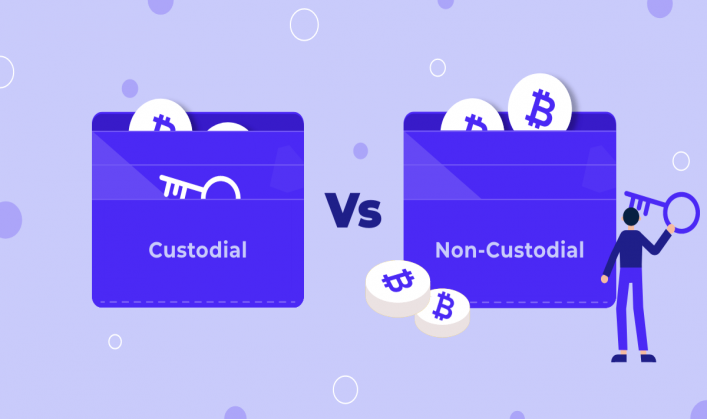7 November 2025
Exploring the Dynamics of Custodial and Non-Custodial Crypto Wallets
In the realm of cryptocurrencies, the choice of wallet plays a pivotal role in shaping users' experiences and security. Among the diverse array of wallets available, custodial and non-custodial wallets stand out as prominent categories, each with its own set of features and considerations.
Bybit offer: Deposit $50, and GET 10 USDT (withdrawable)!
Custodial Wallets: A Closer Look
Custodial wallets, often referred to as hosted wallets, have long been favored for their user-friendly interfaces and seamless functionalities. In essence, they operate on a simple premise: users entrust their digital assets to a third-party service provider, relinquishing control of their private keys in the process.
Read more: Metaverse Assets Taxation: Navigating Complexity In A Digital Age
Features That Define Custodial Wallets
Convenience at the Forefront: Custodial wallets are hailed for their accessibility and ease of use, making them an attractive option for beginners and seasoned users alike. With intuitive interfaces and streamlined processes, they offer a hassle-free way to manage cryptocurrencies.
Emphasis on Support Services: One of the key advantages of custodial wallets is the availability of dedicated customer support. Whether it's resolving technical issues or assisting with lost passwords, users can rely on prompt assistance from the service provider.
Seamless Integration with Exchanges: Many custodial wallets come integrated with cryptocurrency exchanges, enabling users to execute trades and transactions directly from their wallets. This integration streamlines the trading process and eliminates the need for external platforms.
Navigating the Drawbacks
Centralized Control Concerns: The centralized nature of custodial wallets raises valid concerns about control and security. By entrusting their assets to a third party, users expose themselves to potential risks such as hacking, theft, or regulatory interventions.
Security Vulnerabilities: Custodial wallets, being centralized in nature, are vulnerable to security breaches and attacks. Hackers may target these platforms to gain unauthorized access to users' funds, underscoring the importance of robust security measures.
Dependency on Service Providers: Users of custodial wallets are inherently reliant on the integrity and reliability of the service provider. Any downtime, technical glitches, or malpractices on the part of the provider can disrupt users' access to their funds and compromise their security.
Non-Custodial Wallets: Empowering Users
In contrast to custodial wallets, non-custodial wallets offer a paradigm shift in cryptocurrency storage. Here, users retain complete control over their private keys and funds, with no intermediary involved in the process.
Key Features of Non-Custodial Wallets
Security as a Priority: Non-custodial wallets prioritize security and decentralization, empowering users with full control over their digital assets. By managing their private keys locally or through encrypted hardware devices, users mitigate the risks associated with centralized custody.
Advocating Decentralization: At the core of non-custodial wallets lies the principle of decentralization, a fundamental tenet of the cryptocurrency ecosystem. Users enjoy direct ownership and control over their assets, free from the influence of centralized entities.
Enhanced Privacy Measures: Non-custodial wallets offer heightened privacy by keeping users' transactional data and sensitive information decentralized. This shields users from surveillance and data breaches, safeguarding their privacy rights.
Navigating Challenges
Security Responsibility: While non-custodial wallets offer enhanced security, they also place the onus of security squarely on the users. Any lapses in security practices, such as loss of private keys or exposure to malware, can lead to irreversible loss of funds.
Limited Customer Support: Unlike custodial wallets, non-custodial wallets typically lack dedicated customer support services. Users must rely on online resources and community forums for troubleshooting, which may pose challenges for novices.
Learning Curve: Non-custodial wallets may present a steep learning curve, especially for users new to cryptocurrencies or cryptographic concepts. Understanding key management, backup procedures, and security best practices is essential for effective usage.
Conclusion
In the dynamic landscape of cryptocurrency wallets, the choice between custodial and non-custodial solutions is a consequential one. While custodial wallets offer convenience and user support, they come with inherent risks of centralized control and security vulnerabilities. On the other hand, non-custodial wallets prioritize security, control, and decentralization, albeit with a greater emphasis on user responsibility and learning curve.
Disclaimer: The author’s thoughts and comments are solely for educational reasons and informative purposes only. They do not represent financial, investment, or other advice.






